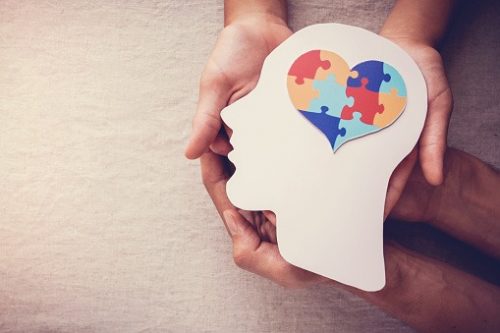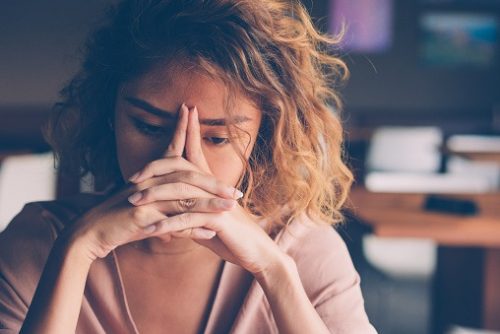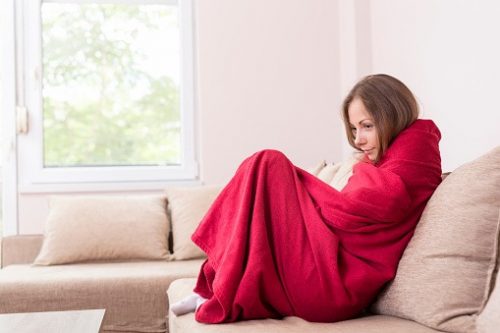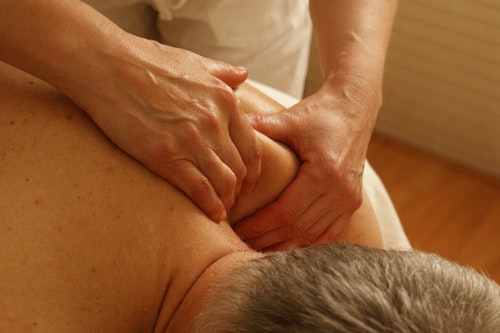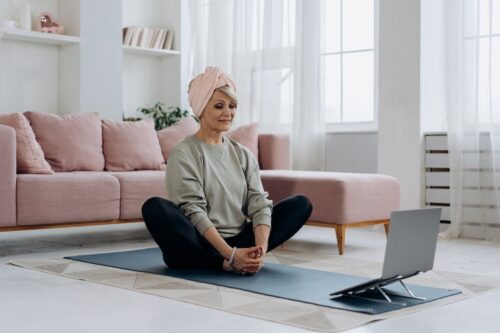
Despite the common belief that the mind and body are distinct, there is a strong connection between mental and physical health. Mental and physical well-being are associated with one another. Conversely, having bad mental health might have a bad physical health impact.
A psychologically significant disruption in an individual’s behavior, control of emotions, or thought processes is indicative of a mental disease. Usually, it is linked to anxiety or problems within critical domains of psychological and emotional functioning. On the other hand, physical health is the state in which the body functions normally. One aspect of your general health concerns how your body develops, feels, and moves and how you take care of and nourish it.
Many factors can lead to psychological disorders and affect your general physiological state. However, long-lasting signs and symptoms that impair your ability to concentrate and perform and cause frequent stress can turn a mental health concern into a mental disorder. Sometimes physical issues, such as headaches, backaches, stomachaches, or other unknown aches and pains, are signs of an illness related to mental health.
In this article, let us look at the common physiological effects of mental health problems.
How Does My Mental Health Affect My Physical Health?
Studies suggest that there is a higher probability of avoidable physical health conditions in individuals with mental health problems. See your primary healthcare provider or a specialist in mental health if you exhibit any indications or signs associated with a mental illness. The majority of mental conditions do not get better on their own, and if left untreated, they can worsen over time and result in other major issues.
There are several possible explanations for this, such as:
Genetics: The same genes that increase your risk of developing psychological issues may also contribute to physical health problems. A mental disorder is more prevalent in those who have blood relations with a mental illness history. A mental health problem may be triggered by your circumstances or brought on by certain genes.
Low Motivation: Certain drugs or psychological problems can make it difficult for you to feel motivated or full of energy to take proper care of yourself. Natural brain chemicals called neurotransmitters are responsible for sending messages from your brain and body to other areas. When these experience a negative effect, depression, bipolar disorder, and other mental health conditions result from changes in the function of nerve receptors and nerve systems caused by impairments in the brain networks involving these substances.
Difficulties Concentrating And Organizing: If a mental health condition causes difficulty concentrating, you can find it challenging to schedule or keep medical appointments. It may lead to having trouble focusing, having excessive worries or fears, experiencing intense guilt, experiencing sharp swings in your mood, or even developing medical conditions. Your mental alertness will noticeably be affected.
Unhealthy Behavior: There is occasionally a connection between mental health issues and exposure to chemicals, alcohol, drugs, inflammatory conditions, and environmental stressors that you should watch out for. Also, your mental health can be attributed to the foods you eat, the quantity of exercise, and the sexual activities you engage in. This is why poor mental health is always associated with a decline in overall health.
Less likely to get health care and medical attention – medical practitioners can disregard your physical symptoms if they think they are a result of psychological distress. Research shows that people with mental health illnesses are less likely to undergo regular medical examinations (such as weight, blood pressure, and cholesterol tests) that could identify a physical health condition or concern early on.

The Targeted Areas
Musculoskeletal System
When psychological issues appear out of nowhere, the muscles stiffen up all at once and afterward relax. People who exclusively look for a medical explanation and treatment for their injuries and to relieve symptoms out of fear of discomfort and reinjury typically recover less quickly than those who continue to engage in a moderate amount of doctor-supervised activities.
Cardiovascular System
Prolonged periods of persistent stress, often known as chronic stress, have been linked to long-term cardiovascular disease and circulatory disorders. The body may suffer from a prolonged and continuing rise in heart rate, high blood pressure, and stress chemical or hormonal levels. The risk of heart attack, hypertension, or stroke may rise as a result of this prolonged, continuous mental strain.
Respiratory System
According to certain research, having a severe mental condition can cause asthma episodes. Furthermore, hyperventilation, or rapid breathing brought on by a mental illness, especially stress, might trigger a panic attack in certain people. Gaining control over your breathing, relaxation, and other cognitive behavioral therapy methods by working with a mental health professional might be beneficial.
Endocrine System
The brain starts a series of events that lead to an increase in the creation of “stress hormone” when an individual feels that a situation is difficult, dangerous, or unmanageable. The future onset of many psychological and physical ailments, including metabolic disorders (such as diabetes and obesity), chronic fatigue, depression, and immunological disorders, can happen when this is disrupted.
Digestive System
Suffering from mental health issues can result in pain, gas, nausea, and other digestive distress like an upset stomach. If the health problem is serious enough, vomiting might happen. Moreover, an unneeded rise or reduction in appetite may result from a mental disorder. Eating unhealthy food can also make you feel worse. Some mental health conditions can impact digestion and the nutrients the intestines receive. Gas generation associated with the absorption of nutrients may rise as well.
Nervous System
Prolonged exposure to mental health challenges might pose a higher risk of a long-term negative impact on the human body. The body ages due to the autonomic nervous system’s continuous induction of bodily reactions.
Linking the Body and Mind
You may be asking, then, just how my physical and mental health are related. You see, being mentally ill might interfere with your ability to prevent chronic illnesses and make wise decisions.
Furthermore, disregarding the state of your mind can result in more severe health issues like:
- Heart disease
- High blood pressure
- Obesity
- Weakened immune system
- Asthma
- Premature death
- Gastronomical problems
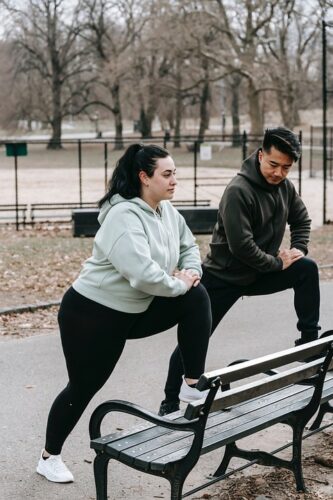
How To Create a Healthy Body and Mind
While preserving your psychological well-being is an important part of maintaining your general well-being, therapy is the most effective way for you to take care of your mind. Here are some strategies for achieving mental as well as physical wellness.
Make Regular Exercise A Priority
Frequent exercise or physical activity has several positive effects on your health, from boosting the production of endorphins to strengthening the muscles around your joints. Make time for a quick stroll or bike to work if your schedule is too busy to fit in physical activity. Also, strength training is a fantastic method to develop strong muscles and will help maintain good mental health if cardio isn’t your thing.
Serotonin and endorphins, two feel-good brain chemicals released during exercise, can help reduce depression and anxiety. Select a physical activity or exercise regimen style that suits your needs. This might be anything between, such as more focused and intention-driven exercise or cardio-intensive interval workouts. The most important thing is to remain committed to it.
Get Enough Sleep
When your entire body feels well, handling challenging circumstances is simpler. An hour before bed, avoid using your phone, as this is a good approach to get a good night’s sleep. Young adults require 8 to 10 hours of quality sleep per night, whereas elderly adults require not less than seven hours, according to the experts of CDC.
If you are having sleep problems (it’s difficult to fall asleep and remain asleep), consider unwinding before bed, cutting less on coffee, and establishing a more rigid nighttime routine. Try to do everything you can to get the good sleep you need to sharpen your mind and get your attention back.
Maintain A Healthy Weight
In addition to enhancing your general quality of life, keeping an ideal weight reduces the likelihood of developing several illnesses, such as high blood pressure, heart disease, and cholesterol. Achieving and maintaining a healthy weight can be facilitated by striking the correct balance between health-conscious foods.
You can use techniques to assist you in keeping a healthy weight. Eating smaller meals can be your start, and you can quit devouring food when you’re full. You can continue to move your body, eat only nutritious snacks, and drink plenty of water.
Practice Mindfulness
Practicing mindfulness can be as easy as using a smartphone application for guided meditation or releasing your thoughts in a space. It has been demonstrated that treatments centered around mindfulness lessen depression and anxiety. Furthermore, research has shown that mindfulness can enhance sleep and reduce blood pressure.
When you have more control over your mental processes in the present moment, you avoid and reduce stress and sudden mood swings. Experts say that mindfulness exercises and spirituality may assist with reducing psychological and physical symptoms, enhancing your physical and mental wellness.
Eat A Balanced Diet
A healthy diet can lift your spirits and make you feel better. Food has a significant impact on the onset, treatment, and avoidance of numerous psychological disorders, such as dementia and depression.
Excessive consumption of processed foods that are rich in calories is associated with health problems and mental illnesses like depression and anxiety. Avoid missing meals and include whole grains, fruits, vegetables, and good cholesterol in your diet for optimal physical health. Always consult your physician about taking vitamins if you have trouble maintaining a balanced diet.
Get Support
Talking to peers about mental health can be challenging. This frequently keeps people from asking for assistance. Never hesitate to ask for help from friends and family members if you need help.











